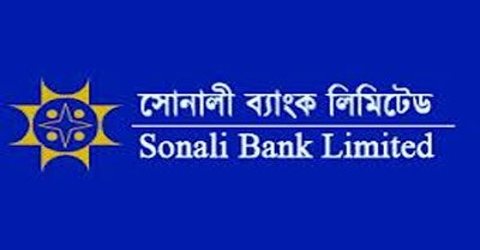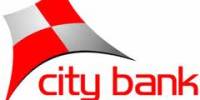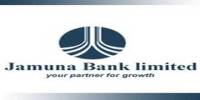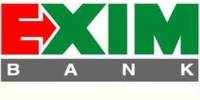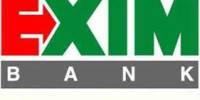The main objectives of this report are to analyze the loan and advance policies of Sonali Bank limited and to highlight the practices of loan and advances disbursement in Sonali Bank Limited. The main focus of the bank are to provide all type of banking services to the door steps of people. Here also find out some problems and suggest some recommendation to solv this problems and also discuss SWOT analysis.
Objectives of the study:
The objectives of the study are as follows:
- To analyze the loan and advance policies of Sonali Bank limited.
- To highlight the practices of loan and advances disbursement in Sonali Bank Limited.
Methodology:
This study have prepared on the basis of my practical experience on the day-to-day banking activities and under the close supervision of my internal guide teacher. Two types of sources have been used for gathering and collecting data required for the study.
- Primary Sources
- Secondary Sources
The Primary Sources are as follows-
- Conservation with the bank officers.
- Conservation with the clients.
- Exposure on different desk of the bank.
The Secondary Sources of data and information are-
- Annual report of Sonali Bank limited.
- Lecture materials from Sonali Bank Staff College.
- Official Records of Sonali Bank Limited.
- Sonali Bank Staff College data.
Banking history of Sonali Bank Limited:
Soon after independent of the country Sonali Bank Ltd emerged as the largest and leading Nationalized Commercial Bank by proclamation of the Banks Nationalized Order 1972 (Presidential Order-26) liquidating the then National Bank of Pakistan, Premier Bank and Bank of Bhwalpur. As a fully state owned institution, the Bank had been discharging its nation-building responsibilities by undertaking government entrusted different socio-economics schemes as well as money market activities of its own volition, covering all spheres of the economy.
The bank has been converted to a public Limited Company with 100% ownership of the government and started functioning as Sonali Bank Limited from November 15, 2007 taking over all assets, liabilities and business of Sonali Bank Limited. After corporatization, the management of the bank has been given required autonomy to make the bank competitive & to run its business effectively.
Sonali Bank Limited is governed by a Board of Directors of 13(thirteen) members. The Bank is headed by the Chief Executive Officer & Managing Director, who is a well-known Banker and a reputed professional. The corporation head quarter of the bank is located at Motijhell, Dhaka Bangladesh, the main commercial center of the capital.
Overview of the Sonali Bank:
Soon after independence of the country Sonali Bank emerged as the largest and leading Nationalized Commercial Bank by proclamation of the Banks’ Nationalization Order 1972 (Presidential Order-26) liquidating the then National Bank of Pakistan, Premier Bank and Bank of Bhwalpur. As a fully state owned institution, the bank had been discharging its nation-building responsibilities by undertaking government entrusted different socio-economic schemes as well as money market activities of its own volition, covering all spheres of the economy.
The bank has been converted to a Public Limited Company with 100% ownership of the government and started functioning as Sonali Bank Limited from November 15 2007 taking over all assets, liabilities and business of Sonali Bank. After corporatization, the management of the bank has been given required autonomy to make the bank competitive & to run its business effectively.
Sonali Bank Limited is governed by a Board of Directors consisting of 11(Eleven) members. The Bank is headed by the Chief Executive Officer & Managing Director, who is a well-known Banker and a reputed professional. The corporate head quarter of the bank is located at Motijheel, Dhaka, Bangladesh, the main commercial center of the capital.
Establishment:
Sonali Bank, the largest commercial Bank in Bangladesh was established in 1972 under Presidential order no. 26 of 1972. The government of the people’s republic of Bangladesh dully owns the bank. After the independence of Bangladesh in 1971, the then government, for their preannounce commitment, nationalized all the banks operating in the country.
As a fully state – owned enterprise, Sonali Bank has discharged its nation- boiling responsibility by undertaking government entrusted different socio- economic scheme as well as money market activities of its own volition, covering all spheres of the economy, Sonali bank singularly enjoys the prestige of being the agent of the Central Bank.
After the birth of Bangladesh on 16th December 1971, newly formed Sonali bank for mass banking got special facilities from the govt. to work on behalf of Bangladesh Bank in those areas where Bangladesh Bank is not available. With the increase of responsibility and by virtue of performance, Sonali Bank has, within a few years, emerged as the largest Nationalized Commercial Bank in the country. To cope up with the decentralization policy of the Government, the bank had to expand its branches in the remote areas of the country.
The principal activities of the bank are providing all kinds of commercial banking services to the customers. It also performs Government treasury functions as an agent of the Bangladesh Bank. The Bank mainly handles the Export and Import Trade of Bangladesh with the socialist countries under various Barter Agreements.
Sonali Bank core Businesses
- Corporate Banking
- Project Finance
- SME Finance
- Consumer Credit
- Trade Finance
- Loan Syndication
- Rural and Micro credit
- NGO- Linkage Loan
- Investment
- Government Treasury Function
Digitalization status of Sonali Bank Limited
- Branch Computerization: 1175 branches are on live operation. Out of 1198 branches at home, 1181 branches have already been entered in the automation network.
- Foreign Remittance : Bank’s own in-house software “Remittance Management System” (RMS+), having, among others, the feature of paying foreign remittance instantly over the counter is being implemented at all branches. This web based software provides digital services to the expatriates through its unique advantage of sending confirmation message to the mobile phone of the remitter/beneficiary. RMS+ Network
- ATM: Sonali Bank Limited is a member of Q-Cash ATM network. At present the bank has 53 ATM booths. Sonali Bank’s ATM cardholders enjoy the access to the ATMs and POS of Dutch Bangla Bank Ltd. and Brac Bank Ltd. besides those of Q-Cash consortium. Sonali Bank recently launched Credit Card.
Q-Cash ATM Network:
- Sonali Bank Limited has introduced Proprietary Debit & Credit cards.
- Card holder can easily pay utility bills like- Water, Telephone, Gas etc.
- It is easy to remit funds among the participating branches of the Bank.
- 24 hours Transactions is available.
- It is a risk less Cash Carrying facility.
- Cashless purchase can be made from specific Point of Sales (POS).
- Only designed Branches of Bangladesh deal Q-Cash cards.
- Branches of District and Upazilla level will introduce Sonali Bank Q-Cash card within shortest possible time.
Online and SMS Banking: At present 109 branches of Sonali Banks are included in the Online Any Branch Banking (ABB) network. SMS Banking service is runnig in 73 branches. The bank is seriously working on connecting all branches in the Real-time Online Banking network gradually. Branches having ABB facility are also rendering SMS banking services.
General Advance:
Introduction:
This is the survival unit of the bank because until and unless the success of this section the survival is a question to every bank. This is important because this is the earning unit of the bank. Bank credit is an important catalyst for bringing about economic development in a country. If this section is not properly works the bank may become bankrupt. No growth of maintenance of a stable economy is possible without adequate financial supporting banks are accepting deposits from the depositors in condition of providing interest to them as well as safe keeping their interest. Now the question may gradually arise how the bank will provide interest to the clients and the simple answer is – advance. Why does the bank provides advances to the borrowers.
- To earn interest from the borrowers and give the deposits interest back.
- To accelerate economic development by providing different industrial as well as agricultural advances.
- To create employment by providing industrial loans.
- To pay the employees as well as meeting the interest groups.
Credit is continuous process. Recovery of one credit gives rise to another credit. In this process of revolving of funds, bank earns income in the form of interest. A bank can invest its funds in many ways. Bank makes loans and advances to traders, businessmen, and industrialists. Moreover nature of credit may differ in terms of security requirement, disbursement provision, terms and conditions etc.
Loan Proposal and Sanction Process:
The total process of proposal and sanction is a continuous process. In a particular stage the describe loan is sanctioned or rejected by the authority. The total process consist maximum of 6 steps:
Step 1– the client apply for a certain amount of loan in a prescribed form which is available in the branch office. He has to mention the amount; the purpose, the mortgage property that he can assure and the time when he wish to enjoy the amount.
Step 2– The branch manager and the cashier then take the responsibility to visit and evaluate the concern. They have to prepare a credit report mentioning the present condition, assets and liabilities ratio, and reputation along with the origin of the concern. He should be some recommendation about the dependency of the firm.
Step 3– Then the credit report is forwarded to the original office for approval. In the regional office two dealing officer under the direct supervision of AGM made some other recommendations by considering the credit report and direct investigation. Then they will justify the net worth of the concern and its economic position.
Here if the amount is with the ability of the regional head (AGM) he can sanction the loan. Otherwise the proposal file will be forwarded to the principal office. If the dealing officers found something dissatisfied they can reject the proposal.
Step 4- The head of the corporate branch (DGM) can sanction a certain level of amount greater then the regional office. Here the file is strictly observed by the dealing officers under the direct supervision of DGM. He may sanction the mentioned amount or reject for the logical cause or send to the GM office or Head office for the further consideration.
Step 5- After reviewing every aspect of the loan proposal the GM can approve the proposal up to certain level. He may reject or send the file to the managing director for the director’s approval. Here it may be sanctioned or rejected.
Step 6- after the approval of the proposal in any of the stage region to the board of directors. Bank send the proposal file along with the necessary papers of the mortgage and to verify the validity of the ownership of the property for a little dissatisfaction of the solicitor the proposal may be rejected. Otherwise he will request the bank to disburse the amount.
Lending Principles:
In order to secure a balance between liquidity, profitability and security, sonali bank follows the following principles of sound lending-
Liquidity: Liquidity means enchasing ability of security i.e. securities that are more easily cashable are more liquid. So while lending money to any project or industry, adequate care has to be taken so that the liquidity is not compromised. That’s why Sonali bank chooses such securities which possesses sufficient liquidity.
Safety: While lending depositor’s money, there should be guarantee of returning the funds. Sonali Bank exercises the lending function only when it is safe and that the risk factor is adequately mitigated and covered. Safety depends upon
- The security offered by the borrower; and
- The repaying capacity and willingness of the debtor to repay the loan with interest.
Diversity: There is a proverb “Don’t put all the eggs in a basket”. Keeping the proverb in mind, Sonali bank invests its funds in different types of securities of different industries situated in different regions of the country.
Yield: In order to survive and development, each bank has to make profit. From the commercial point of view, Sonali bank considers sufficient yield or return while financing a project.
We often use loans and advances as an alternative to each other. But academically this concept is incorrect. Academically advances is the combination such items where loans is a part only. For this credit section of the bank is known as advance section. Academically advance is the combined from of the following items
This section has been analyzed in this report in the following manner:
- Types of advances provide by the branch
- Types of security charged and their valuation
- Procedures of loan appraisal
- Documentation
- Classification of loan
- Analysis of secondary data.
- Follow up and reporting
Classification of Loans & advances:
Sonali bank offers following types of loans and advances;
- Secured Overdraft (SOD)
- Cash – Credit (CC)
- Mid- term loan
- Demand loan
- Small loan
- Customer loan
- Industrial loan
- Bills purchased & discounted
- Staff loan.
- House building loan
- Transport loan
Secured Overdraft (SOD):
Secured overdraft is a continuous advanced facility. Under this facility, customers are allowed to overdraw from his current account up to his credit limits sanctioned by the bank. The interest is charged on the amount withdrawn from the account only, not on the sanctioned amount. Sonali bank sanctioned SOD against different security. Based on different types of security, we can divide SOD in the following categories-
SOD (General): This type of over draft is allowed to the individuals against. Financial obligations i.e. lien of FDR or defense savings certificate, ICB unit certificate etc.
SOD (Others): This type of over drafts is allowed against assignment of advance is generally allowed for a specific purpose. It is not a continuous loan.
SOD (Export): This type of over draft is allowed to purchasing foreign currency to make payment against L/Cs where the exporter cannot materialize before the date of import payment.
Procedure of Sanctioning SOD:
- The party should have a current account with the branch.
- In case of a proprietorship firm, trade license must be submitted and in case of a limited company, all the documents required to open a current A/C should be submitted. The financial statements of the concerned firm should also be submitted.
- The party will submit application to the concerned officer in the prescribed form.
- The officer will prepare a “Credit Appraisal”, where he writes about the business concern, details of proprietors/ directors of the concern, management structure, the existing credit facilities, the particulars about the facilities that asked for – such as margin limit, date of expiry, details of security, and any other relevant information with a proposal to sent it to the head office, General advances Division for approval.
- Head office will examine the proposal and if it seems to a viable then the loan will be sanctioned.
Cash Credit (CC):
Cash Credit (CC) is an arrangement by which a banker allows his customer to borrow money up to a certain limit for meeting the working capital requirements of existing industries. It is operated like overdraft account. The borrower withdraw cash from his/her CC account and depositing money, he can adjust his loan account Sonali Bank charges interest on the daily balance basis in the account. Depending on charging security there are two forms of cash credit-
Cash credit (Hypothecation): Hypothecation is a legal transaction whereby goods are made available to the lending banker as security for a debt without transferring possession of goods. Since the goods always remain in the physical possession of the borrower, there is much risk to the bank. So, in sanctioning CC, additional security (Collateral) is obtained.
Cash Credit (pledge): Pledge is the bailment of goods as security for payment of a debt or performance of a promise. In a contract of pledge, the borrower (pledge) must deliver the goods pledged to the pledge (Pawnee) either actually or constructively.
After sanctioning cash credit, the customer is to prepared documents required charge documents. Thereafter, the banker issues a cheque-book for withdrawing cash from the account. The customer can withdraw cash from the account the sanctioned amount.
The charge documents required for opening a CC account are as follows-
- Demand promissory Note (DP note)
- Letter of agreement
- Revival Letter
- Letter of continuity
- Letter of hypothecation/Pledge
- Letter of Guarantee
- Memorandum of deposit of Title Deed (in case of CC hypothecation arrangement)
Mid-term loan:
Considering the capital structure, constitution and liquidity requirement, sonali bank allows short-term loans. Mid –term loans are sanctioned for the period more than one year and up to five years. Both modern banks have state lending a safe proportion of their demand and time liabilities for fairly long periods to house building, industrial, Agricultural, Transport and many other sectors. Such loans are repayable by installments over a number of years ranging from 2 to 12 (Agricultural loans ranging from 6 to 15 months), as far as, nature and conduct are concerned.
Demand loan:
This is the fixed type of lending in its original form. The entire amount is paid to the debtor at one time, either in cash or by transfer to his saving account. On subsequent debit is ordinarily allowed except by way of interest, incidental charges, insurance premium, expense incurred for the protection of security etc. A separate ledger id used for the maintenance of this account and as no subsequent withdrawal is allowed, no cheque is issued into this account.
Small loans:
It refers to the lending allowed to small traders; cottage industries, small- scale industries and self employed persons. The maximum ceiling for this loan is at present is tk.5000.00 for small traders and self employed persons, tk.2, 00,000.00 for cottage industries and small-scale industries. Such loans are generally productive/ development oriented rather then security oriented & this is the way of emphasis in these case is on the purpose of the advance as well as skill reputation capacity of the borrower. The security requirements are substituted the end-use and frequent supervision of the credit.
Staff Loan:
Staffs of sonali Bank are provided with ‘Staff Loans” for buying motorcycles and bicycles, for wedding of their sons or daughter etc. Bank provides this advance facility under installment system. The amount of loan is recovered from their monthly salary.
House building loans:
Sonali bank provides long term advances for building residential house. Advances for construction of residential houses against real estates as primary securities as allowed by banks up to tk.5.00 lacks per party (including cost of land) minus any loan taken from HBFC for these purpose. The rate of interest for “house Building Loans’ is 16% per annum and maximum repayment period is 12 years. In such cases, parties have to pay down payment of 30% of the total amount and rest of the amount should be repaid within 2 years.
Purchase & discount of bills:
Sonali bank normally purchase demand bills of exchange that are called “Drafts” accompanied by documents of title to goods such as Bill of Lading, Railway or Truck receipt. It is a special kind of advance. Sonali bank purchases “Bills of Exchange” that would be matured after a certain period and not payable on demand or sight. This is termed as discounting a bill and the charge recovered by Bank for this is called “Discount”.
Consumer loans:
The main purpose of the scheme is to improve life standard of the consumers by providing them loans for purchasing house hold items, for example, computer, television, freeze, motor car & cycle, air- condition & cooler, furniture etc. Various commercial banks offering various types of loans to the consumer so that they can enjoy these innovations and fixed a very easy installment process to repay that money.
Sonali Bank is offering loan calling Consumer Credit scheme in various types of goods.
Transport loan:
Genuine transport businessmen are allowed advances for “power-Driven Vehicles” (PDV) including water crafts against hypothecation at 30% margin and suitable guarantee from persons and sufficient collateral.
In case of acceptance of mortgage, the minimum margin may be reduced up to 10%. These loans should be repayable within maximum period of two years, which is subject to renewal with approval from head office.
Bank Guarantee:
A bank guarantee is an irrevocable undertaking to a third party by a bank on behalf of his customer to pay if the customer fails to meet the certain contractual obligation.
Banks get commission from issuing guarantee. The person who gives the guarantee is called the ‘surety’. The person in respect of whose default the guarantee is given is called ‘the principal debtor’ and the person to whom the guarantee is given is called the ‘creditor’. In case of bank guarantee, the bank is ‘surety’ and customer is ‘principal debtor’. It is a contingent liability i.e. depends on the happening of a certain event.
Sonali bank Agrani Balika Biddyalaya Branch issues different types of guarantee as stated below:
- Tender or bid bond guarantee: the bank issues bid bond guarantee on behalf of the customer favoring the beneficiary (third party which has requested the bid) to submit the tender schedule by the customer.
- Performance or Earnest money Guarantee: In case of a performance guarantee the banker commits that it will pay a certain sum of money if the bidder fails to perform the contractual job. A performance guarantee expires on completion of the delivery or performance.
- Repayment or advanced payment guarantee (APG): This type of guarantee is given against work order. Here we can cite an example. Before the beginning of jamuna bridge construction, the government collected money from different sources to pay the contractors in advance. But there was a risk for the government that the contractors might not do there construction work even they where paid in advance. So the government asked bank guarantee from them. Then the contractors submitted bank guarantee to the government. This type of guarantee is called advanced payment Guarantee (APG). This type of guarantee is given against work order.
- Counter Guarantee: counter guarantee is issued against another bank’s guarantee.
- Security guarantee: this type of guarantee is given when security is required.
Issuance procedure of guarantee:
Bank guarantee is a contractual relationship between the account (Client) and the beneficiary. For issuing bank Guarantee, a customer has to apply to Sonali Bank in his or her own pad. Normally the bank prepares the format of the guarantee. A guarantee issue Register is maintained to record following information about Guarantee:
- Name of the customer.
- Account no.
- Guarantee no.
- Issuing date.
- Date of approval.
- Beneficiary of the guarantee.
- Amount of guarantee.
- Margin (percent and amount).
- Commission.
- Date of Expiry.
Discussion
- This branch is located in large populated areas, so banks can get customers easily to collect deposit and also can get borrowers to sanction loans.
- This branch permitted loan for small industries and short credit. There are a large number of small business holders are in this branch, which gives an-opportunities to sanction loan easily, and the small loan holder are not a great number of loan defaulter.
- The loan and advance department takes a long term to process a loan because the process of sanctioning loan is done manually. Since loan and advance department is not fully automated there is a high risk of losing document of disbursed loans.
- In terms of law and order sometime it is very difficult for the bank to liquidate the collateral, which makes the borrowers unable to pay the debt.
- The loan and advance strategy of Sonali Bank Limited is not appropriate enough to survive in the market.
- Maximum amount of the loan are provide in the long-term industrial loan sector.
Conclusion
The branch is not utilizing computers to its full capacity. Many functions that can be done by computer are not practiced in this branch. In cash section, the branch is using computer but the process of using is not good. The procedure of accepting deposit and paying money is very lengthy. Two numbers are given in a cheque and in a deposit slip to complete the process. But it can easily ignore one number and complete the process quickly.
In account opening section the branch is not giving any letter of thanks to the introducer-which is theoretically a necessary part to check fraud.
Recommendations:
Every think have some recommendation in my three months working experience in Sonali Bank Limited at Agrani Balika Biddyalaya Branch at different department lead to recommendation on the following issue:
- The online service should be started for quick service.
- Branch decoration & the customer hospitality service should be developed soon.
- The bank should decrease the loan sanction time.
- Increase ATM booth.
- Bank should be increased the amount of Q-Cash withdrawn from the both.
- The bank activities should be upload compare with the other bank.
- If the enter general banking system is computerized then the SBL, Satisfy the customer by providing fast service.
- If the Sonali Bank Limited establish networking system with their branches it can easily transfer data within short time
